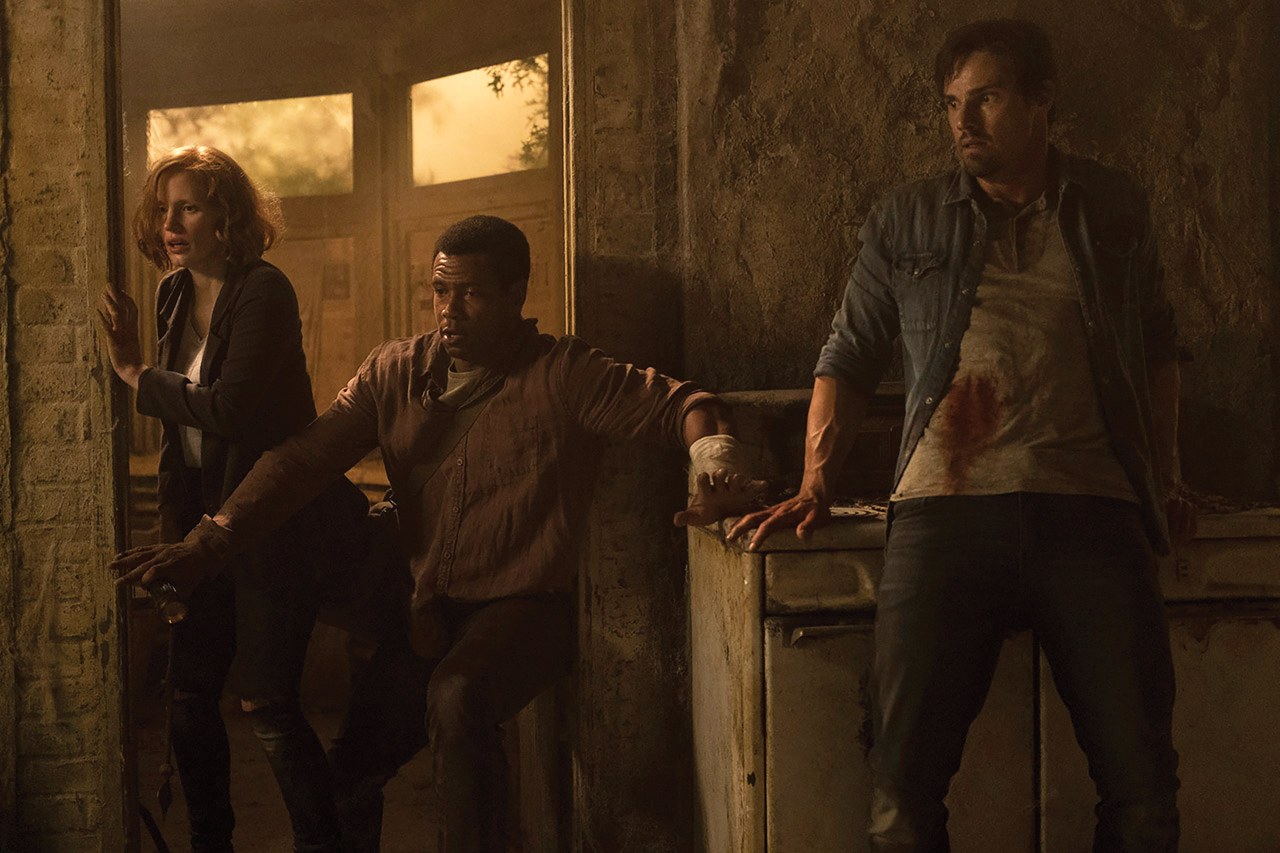“It Chapter Two” explores confronting the past
Review of “It Chapter Two”
September 27, 2019

Twenty-seven years after facing Pennywise (Bill Skarsgard) the first time, the “Losers’ Club,” the protagonists of the “It” horror franchise, risk their lives for the second time as they confront the child-eating clown in “It Chapter 2.”
This time, the clown has giant spider-like legs.
History repeats as the Losers’ Club find themselves once again facing the fears that nearly took them down the first time: their pasts.
In confronting the trauma of their pasts, “It Chapter Two” becomes one of the most profound movies of summer 2019.
One of the biggest conflicts is adult Bill Denbrough’s (James McAvoy) guilt over Georgie’s death.
This is seen throughout the movie by his desire to protect a boy he befriended from Pennywise, In one scene, he runs to a carnival in town and enters a house of mirrors in fear that the boy has been harmed by Pennywise. Bill’s fears are realized when he finds Pennywise lurking behind the boy.
He blames himself for his brother’s death and as a result, attempts to redeem himself by protecting others.
Similarly, in the battle with Pennywise in the final act of the film, Bill is dealing with his internalized guilt for leaving Georgie to play alone, which allowed for Pennywise’s attack.
In the end, Bill is able to admit that he cannot blame himself for his little brother’s death.
Both scenes perfectly illustrate how Bill had to deal with his former self in order to truly defeat Pennywise, or rather, his greatest fear.
This greatest fear takes many forms for the different characters.
Adult Beverly Marsh (Jessica Chastain) has to deal with the trauma of abusive relationships, the first incident of which occurs at the beginning of the film when Mike Hanlon (Isaiah Mustafa) announces Pennywise’s return.
This leads to Beverly’s physical confrontation with her partner while she plans to return to Derry — the town the movie is set in — ending in him accusing Beverly of cheating on him.
This abuse allows the audience to feel for her and reveals that her biggest fear is her relationships with other people.
When she returns to her old apartment to retrieve something she left in her childhood, she finds an old woman now living there. While having a conversation with the old woman, Beverly has flashbacks of incidents of abuse with her father.
Through these scenes, the audience realizes that she has had trauma in her life which she overcomes throughout the film, building her up to be a stronger character capable of holding the team together during the final battle with Pennywise.
Love is another fear capable of holding the characters back.

Adult Ben Hanscom (Jay Ryan) must confront his fear in that he still is in love with Beverly, despite the fact that 27 years have passed.
This is best seen through the letter he wrote to Beverly, which she hid at her old house. When she finds the letter, she becomes enamored with who wrote it, thinking it was someone else in the group but never considering Ben.
It takes Benthe entire movie to finally work up the confidence to admit that he was, in fact, the one who wrote the letter. The transformation of Ben becoming a confident man embracing his fear becomes one of the most heartwarming plotlines.
The relationship between Beverly and Ben makes the resolution rewarding and provides closure for the Losers’ Club because, after having to deal once again with their childhood trauma, the group is finally able to reach a place of peace after Pennywise’s demise.
“It Chapter Two” is a story about people overcoming their greatest fears in order to make the lives they want for themselves.
Through the Losers’ Club’s adversity, audience members can examine their own fears and how they impact their lives. In the process, they can begin to work towards improving their own circumstances in order to feel a sense of peace similar to that of the members of the Losers’ Club.


























































































